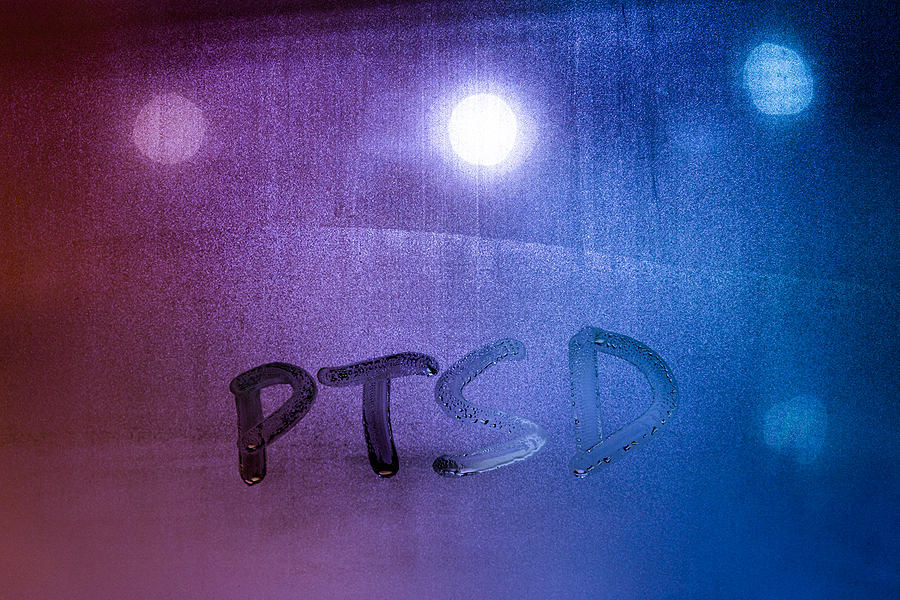Many people in car accidents take months to recover. Others sustain catastrophic injuries that cause long-term or permanent disabilities.
Any one of these types of accidents can be traumatic—even if they do not cause catastrophic injuries or the death of a loved one. When an accident is traumatic, it can also cause the victim to suffer from anxiety, depression, or post-traumatic stress disorder.
Since these secondary injuries happen because of the defendant’s negligence, the defendant must pay medical expenses and other damages to the victim.
What Is Post-Traumatic Stress Disorder?
In short, post-traumatic stress disorder, or PTSD, is a mental health condition that people suffer from after a traumatic event. The person with PTSD does not have to experience the traumatic event—it is often enough for someone to witness the event.
For example, a mother is going to the grocery store. She has her two-year-old child in the back seat. Someone runs a red light and crashes into the side of her car but is not going fast enough to do a lot of damage. The vehicle has a dent in the front passenger door but no other damage. The mother did not suffer injuries other than red marks where the side impact airbags hit her.
All the mother can think about is that the other driver injured her child. When she checks the child, she learns that the child did not suffer any injuries and is just scared. In the mother’s eye, the accident was traumatic since she believed her child was seriously injured.
PTSD Symptoms
The symptoms of PTSD could start within a month of the traumatic accident, or they might not manifest until years later. The symptoms vary from person to person, though they all have one thing in common: The symptoms cause the accident victim to have problems—usually significant—in relationships, work situations, and social situations. The symptoms could also prevent someone from taking care of everyday tasks.
Symptoms include intrusive memories, negative changes in thinking and/or a person’s mood, avoidance, and changes in how a person reacts emotionally and physically.
Some of the more common symptoms include:
- Distressing memories of the event that keep recurring (intrusive memories).
- Nightmares and/or upsetting dreams (intrusive memories).
- Having physical reactions and/or emotional distress when something reminds you of the wreck (intrusive memories).
- Avoiding places, people, or activities that remind you of the accident.
- Refusing to talk about the accident.
- Feeling hopeless about the future (negative mood/thinking).
- Lack of interest in activities (negative mood/thinking).
- Problem remembering things, especially the traumatic event (negative mood/thinking).
- Losing all emotion (negative mood/thinking).
- Feeling detached from friends and family (negative mood/thinking).
- Startling easily (physical and/or emotional reactions).
- Trouble sleeping or concentrating (physical and/or emotional reactions).
- Feeling as though you need to be on guard for something (physical and/or emotional reactions).
These are just some of the symptoms of post-traumatic stress disorder that people suffer. You might have one or two of these symptoms, or you could suffer from several.
When You Should See a Doctor
If you notice these or other symptoms of PTSD for more than a month after the traumatic accident, you should make an appointment with a mental health professional. You could help prevent the PTSD symptoms from getting worse if you get help sooner rather than later.
PTSD could lead to suicidal thoughts. If you notice having these thoughts, you should contact a mental health professional, but you could also reach out to a close friend, a relative, or even your minister. Always call 911 if you are on the verge of hurting yourself or are having suicidal thoughts.
Temporary Symptoms Similar to PTSD
Some people might not be able to stop thinking about the accident and might even have nightmares about the accident. Often, these symptoms are temporary and will resolve in a couple of weeks. If they persist for more than a month, you might have post-traumatic stress disorder and should see a medical professional and a lawyer who has experience with PTSD accidents.
If you get help as soon as you or a loved one notices these symptoms, you could find that the symptoms are temporary or, if you do have PTSD, could minimize the severity of the symptoms.
Diagnosis and Treatment of PTSD
Your mental health professional will evaluate you and check your symptoms against the criteria in the Diagnostic and Statistical Manual of Mental Disorders, published by the American Psychiatric Association.
Mental health professionals can treat you in many ways depending on your situation, including but not limited to:
- Teaching skills to help your symptoms.
- Teaching you coping mechanisms.
- Cognitive therapy.
- Exposure therapy.
- Medications, including antidepressants and anti-anxiety medications.
Not all types of treatment help everyone. Where teaching skills and cognitive therapy might help one person, another might require medication to deal with the symptoms. However, regardless of the type of therapy you choose, including medicine therapy, it takes some time to start working. Medications often take up to six weeks before you notice any difference. Different types of treatment and coping exercises also take some time to start working.
Recovering Damages
Because you would not have these issues if not for the accident caused by the defendant, the defendant should be held responsible for paying for your mental health treatment. You could also collect other damages, especially if you suffered physical injuries in the accident, including medical expenses, lost wages, funeral expenses, pain and suffering, and emotional distress.
If you suffered injuries or lost a loved one in a car accident, contact a car accident attorney for a free case evaluation.


